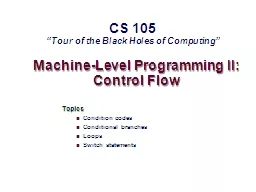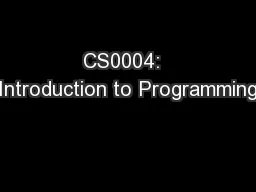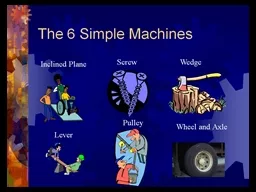PPT-Machine-Level Programming II:
Author : loaiatdog | Published Date : 2020-08-28
Control Flow Topics Condition codes Conditional branches Loops Switch statements CS 105 Tour of the Black Holes of Computing Condition Codes Implicit Setting Singlebit
Presentation Embed Code
Download Presentation
Download Presentation The PPT/PDF document "Machine-Level Programming II:" is the property of its rightful owner. Permission is granted to download and print the materials on this website for personal, non-commercial use only, and to display it on your personal computer provided you do not modify the materials and that you retain all copyright notices contained in the materials. By downloading content from our website, you accept the terms of this agreement.
Machine-Level Programming II:: Transcript
Download Rules Of Document
"Machine-Level Programming II:"The content belongs to its owner. You may download and print it for personal use, without modification, and keep all copyright notices. By downloading, you agree to these terms.
Related Documents





![[FREE]-c programming textbook.c programming book.c programming language.c programming.c](https://thumbs.docslides.com/979920/free-c-programming-textbook-c-programming-book-c-programming-language-c-programming-c-programming-visual-quickstart-guide-c-programming-for-dummies-absolute-beginner-s-beginner-exercises-in-easy-steps.jpg)
![[eBOOK]-Programming 60: C++ Programming Professional Made Easy & MYSQL Programming Professional](https://thumbs.docslides.com/980127/ebook-programming-60-c-programming-professional-made-easy-mysql-programming-professional-made-easy-c-programming-c-language-c-for-beginners-c-mysql-programming-mysql-c-programming.jpg)
![[eBOOK]-Programming 20:C Programming Professional Made Easy & Facebook Social Power (Facebook,](https://thumbs.docslides.com/980130/ebook-programming-20-c-programming-professional-made-easy-facebook-social-power-facebook-facebook-marketing-social-media-c-programming-c-programming-languages-android-c-programming.jpg)
![[BEST]-Programming 11:C Programming Success in a Day & Rails Programming Professional](https://thumbs.docslides.com/980146/best-programming-11-c-programming-success-in-a-day-rails-programming-professional-made-easy-c-programming-c-programming-c-programming-language-rails-android-programming-ruby-rails-php-css.jpg)
![[PDF]-Programming 3: Python Programming Professional Made Easy & C Programming Success](https://thumbs.docslides.com/980147/pdf-programming-3-python-programming-professional-made-easy-c-programming-success-in-a-day-c-programming-c-programming-c-programming-language-html-python-programming-python-java-php.jpg)
![[FREE]-Programming 16: Python Programming In A Day & C Programming Professional Made Easy](https://thumbs.docslides.com/980148/free-programming-16-python-programming-in-a-day-c-programming-professional-made-easy-c-programming-c-programming-c-programming-language-html-python-python-programming-coding-css-java-php.jpg)
![[READING BOOK]-C: Programming: Computer Programming for Beginners: Learn the Basics of](https://thumbs.docslides.com/980690/reading-book-c-programming-computer-programming-for-beginners-learn-the-basics-of-c-coding-c-programming-java-programming-c-programming-javascript-python-php.jpg)
![[READ]-Programming 5:C Programming Success in a Day Excel Shortcuts (C Programming, C++programming,](https://thumbs.docslides.com/988966/read-programming-5-c-programming-success-in-a-day-excel-shortcuts-c-programming-c-programming-c-programming-language-excel-javascript-programming-microsoft-excel-python-java-php.jpg)